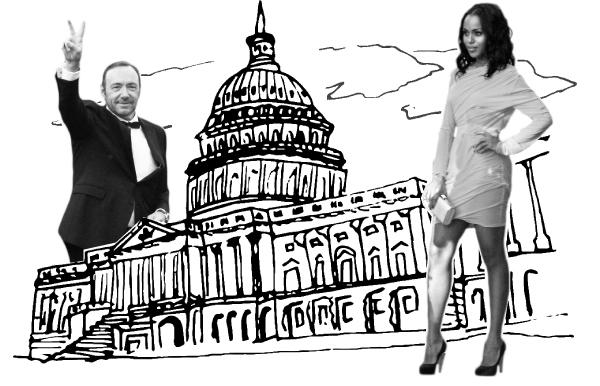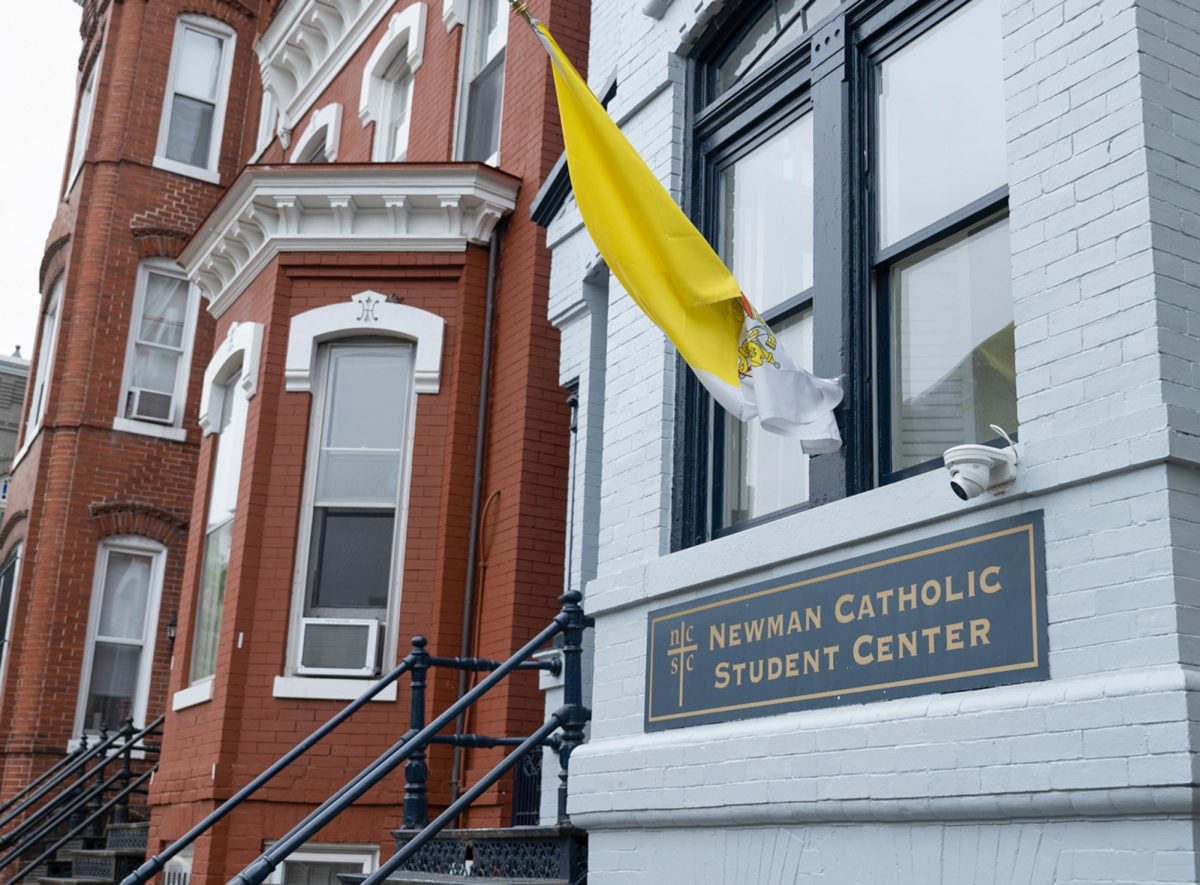
Dark and gritty shots of D.C. fly across the screen during the opening credits of “House of Cards,” which returns for its second season this month. But that’s the most screentime the real District gets in the series.
The recent deluge of political thrillers and comedies set in D.C. take advantage of all the natural intrigue of the nation’s capital. But although D.C. acts as a muse, series like “Veep,” “Scandal” and others have found filming in Baltimore to be a suitable substitute.
That trend has D.C. lawmakers calling for change, with mayoral candidate Jack Evans even campaigning on the idea of luring production companies to film in D.C.
“They get some shots of the White House and the Capitol and then they go elsewhere,” said Foggy Bottom’s D.C. Council member Jack Evans in an interview with The Hatchet. “I could go on and on about the missed opportunities.”
There are dozens of missed opportunities, and not only for fans hoping to one day catch a glimpse of “Scandal’s” Kerry Washington or “House of Cards'” Kevin Spacey shooting episodes on the National Mall. In true “House of Cards” style, the issue is all about money and politics.
“House of Cards” initially approached the D.C. government to film the majority of the series in the city, but that ultimately proved too expensive and Maryland was waiting with big tax incentives in hand.
“The government of Maryland put a few million dollars on the table and [D.C.] didn’t put any. And so they filmed that whole show in Baltimore and made them $150 million. They spent it all on Baltimore,” Evans said.
D.C.’s neighbor has built a shadow world of sets and soundstages modeled after District locales and sweetened by tax incentives that has boosted the state’s economy. “House of Cards” production alone generated an estimated $147 million in economic activity and created around 2,100 jobs, according to Maryland’s department of business and economic development.
Patrick Burns, a film location scout and manager based in the D.C. area, has worked on an array of box office projects from “Salt” to “House of Cards.” He said while he benefits from Maryland’s financial rewards, D.C. should follow suit.
“To be honest, the best thing would be to give D.C. a legitimate tax incentive. That’s what it’s all about. I hate to say it, but I think tax incentives have kind of turned cities against each other trying to get companies a better and better deal,” Burns said.
Despite the economic benefits, giving production companies tax breaks has been politically unpopular. Last November, D.C. Council member Vincent Orange proposed a small tax on real estate owners to help incentivize film productions, but the plan quickly lost support.
“You try and put an incentive package together and all the crazy people go, ‘Oh my god, you should be spending this money on the homeless and not on movies,'” Evans said. “Well, that’s how you employ people who are homeless or down on their luck. You create jobs. And in order to do that you gotta invest.”
Still, advocates of the D.C. film industry emphasize that for all the movie magic, digitally designed monuments don’t feel quite right. In the end, technology cannot convey the gravitas of the District, said Pierre Bagley, director of the D.C. Office of Motion Picture and Television Development.
Classic movies like the 1976 film “All the President’s Men” featured plenty of real scenes in the District. Bagley said there’s plenty of money for the city to spare on bringing more future hits to D.C.
“Ultimately, there is no place like D.C. The advantage of filming here is you get the real thing. You cannot fake authenticity,” Bagley said.








